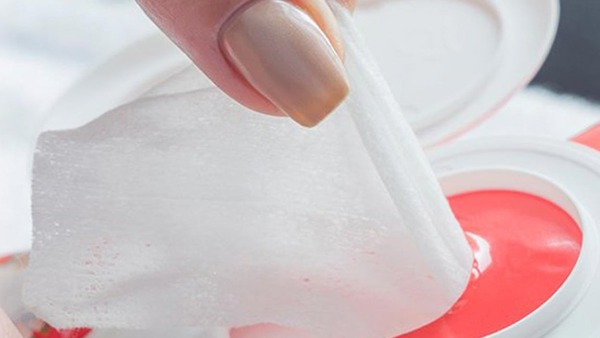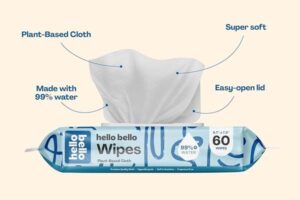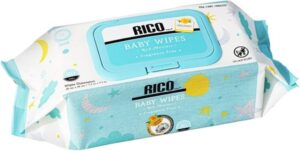
Are you unsure about using wet wipes for personal hygiene down there? Maybe you worry they might cause irritation or other problems. Using the right kind of wipe can actually offer a gentle and effective clean.
Yes, you can safely use wet wipes on private parts, but it is very important to choose the right ones. Look for wipes made for sensitive skin. They should be free from alcohol, strong fragrances, and harsh chemicals to prevent discomfort.
Using just any wet wipe might seem easy, but many contain ingredients that are too harsh for your delicate intimate areas. These ingredients can mess up your natural pH balance or remove the skin's protective oils. At BBWIPES®, we understand this. We focus on making formulas that respect sensitive skin. Our goal is to ensure safety and comfort. It really comes down to picking the correct product for this specific use. We pay close attention to the materials and solutions we use, ensuring they are gentle yet effective for personal care.
Think about why intimate skin needs special care. It's thinner and absorbs things more easily than skin elsewhere. It also has a specific, slightly acidic pH level that helps keep it healthy. Ingredients like alcohol are common in general-purpose wipes, but they can be very drying, especially on sensitive mucous membranes. Fragrances are another big issue; they are a top cause of allergic reactions. Some preservatives, like Methylisothiazolinone (MI)1, have also been linked to skin irritation. This is why choosing hypoallergenic, pH-balanced wipes is so important. We often recommend, and produce, wipes using gentle cleansing agents and soothing ingredients like aloe vera or chamomile extract in our specialized formulations for private label clients.
Can Wet Wipes Cause Hemorrhoids?
Worried that using wet wipes might be the cause of painful hemorrhoids? Let's look at the facts and clear up any confusion.
Wet wipes do not directly cause hemorrhoids, which are swollen veins. However, wiping too hard or using wipes with irritating ingredients can definitely make existing hemorrhoids feel worse or irritate the delicate skin around the anus.
Hemorrhoids develop due to pressure on the veins in the rectal area, often from straining during bowel movements, pregnancy, or prolonged sitting. Wipes themselves don't create this pressure. The problem comes in when wiping aggravates the already sensitive or swollen tissue. If a wipe contains irritants, or if you rub too vigorously, you can cause inflammation and discomfort, making hemorrhoid symptoms flare up. It’s about how you use the wipe and what’s in it.
Understanding Wipes and Hemorrhoid Care
Let's break down the connection between wet wipes and hemorrhoid discomfort further.
The Irritation Factor: Chemicals and Friction
Many standard wet wipes contain ingredients that can be problematic for sensitive perianal skin, especially if you have hemorrhoids.
- Alcohol: Often included for its drying and "cleaning" feel, alcohol can severely dry out and irritate delicate tissues, leading to stinging or burning.
- Fragrances: Synthetic scents are common allergens and irritants. Even natural fragrances can sometimes cause reactions on sensitive skin.
- Harsh Preservatives: Certain chemicals used to prevent bacterial growth in the wipes (like MI/MCI) can trigger allergic contact dermatitis in some individuals.
- Friction: The physical act of wiping, especially rubbing hard, can directly irritate swollen hemorrhoidal tissue, potentially causing minor bleeding or increased pain.
Best Practices When Using Wipes with Hemorrhoids
If you have hemorrhoids but want the clean feeling of a wet wipe, follow these tips:
- Choose Wisely: Opt for wipes specifically labeled as hypoallergenic, fragrance-free, and alcohol-free2. Simpler is often better. Look for wipes designed for sensitive skin or even baby wipes (though check ingredients).
- Be Gentle: Pat, don't rub. Use a soft, dabbing motion. Aggressive wiping is your enemy here.
- Consider Soothing Ingredients: Some wipes contain ingredients like aloe vera or chamomile, known for their calming properties. Witch hazel is sometimes used, but be cautious – it's an astringent and can sometimes be drying or irritating for very sensitive individuals. Test gently first.
- Dry Gently: After cleansing with a wipe, gently pat the area dry with soft, plain toilet paper or a soft cloth. Lingering moisture can sometimes increase irritation.
- Don't Flush: Remember, unless specifically labeled "flushable" and certified by relevant authorities (like INDA/EDANA standards), most wet wipes should go in the trash, not the toilet, to avoid plumbing issues.
Table: Potential Irritants vs. Generally Soothing Agents in Wipes
| Potential Irritants | Why Problematic for Hemorrhoids | Generally Soothing Agents | Why Helpful |
|---|---|---|---|
| Alcohol (SD Alcohol, etc.) | Drying, stinging, irritating | Aloe Vera | Calming, moisturizing |
| Fragrance (Parfum) | Common allergen, can irritate | Chamomile Extract | Anti-inflammatory effects |
| MI / MCI Preservatives | Can cause allergic reactions | pH-Balanced Formula | Supports skin health |
| Rough Texture / Material | Causes physical friction | Soft, Smooth Material | Reduces friction |
| Aggressive Rubbing | Damages delicate tissue | Gentle Patting Motion | Minimizes irritation |
Can Wet Wipes Cause Itchy Anus (Pruritus Ani)?
Are you dealing with that persistent, frustrating itch around your anus after using wet wipes? Let's investigate if the wipes could be involved.
Yes, certain wet wipes can definitely contribute to or worsen an itchy anus, a condition known as pruritus ani3. This is often due to allergic reactions to ingredients or because they leave too much moisture behind.
Pruritus ani has many potential causes, but contact dermatitis from wet wipe ingredients is a common trigger. The skin in this area is sensitive, and repeated exposure to allergens or irritants can easily lead to itching, redness, and discomfort. Even wipes marketed as 'gentle' can sometimes contain hidden culprits. Another factor is moisture – if the area isn't properly dried after using a wipe, the damp environment can lead to skin breakdown (maceration) or encourage fungal growth, both of which cause itching.
Identifying and Preventing Wipe-Related Itch
Understanding the specifics can help you choose better and use wipes more safely.
Common Culprits in Wipes Causing Itch
- Fragrances: As mentioned, a major source of allergic contact dermatitis. Even "unscented" wipes might contain masking fragrances. Look for "fragrance-free."
- Preservatives: Methylisothiazolinone (MI) and Methylchloroisothiazolinone/Methylisothiazolinone (MCI/MI) are well-known culprits for allergic reactions causing severe itching. Parabens and formaldehyde-releasing preservatives can also be problematic for some.
- Cleansing Agents (Surfactants): While needed for cleaning, some surfactants can be too harsh, stripping natural oils and leading to dryness and itch.
- Propylene Glycol: A common ingredient that helps keep wipes moist, but some people are sensitive or allergic to it.
The Moisture Problem Explained
Wet wipes, by definition, leave some moisture behind. If this moisture lingers:
- Maceration: The skin becomes overly soft and waterlogged, compromising its barrier function and making it prone to irritation and breakdown.
- Fungal Growth: Warm, moist environments are ideal for yeast (like Candida albicans) to thrive, leading to fungal infections that cause intense itching.
- Bacterial Imbalance: The altered environment might disrupt the natural balance of skin bacteria.
How to Choose and Use Wipes to Avoid Itch
- Prioritize Hypoallergenic and Fragrance-Free: This eliminates the most common triggers.
- Check Preservatives: If you react, try wipes with alternative, gentler preservative systems. Sometimes this takes trial and error, or a patch test recommended by a doctor. At BBWIPES®, our R&D team works hard to select preservatives with low allergenic potential for sensitive formulations.
- Pat Dry: Always gently pat the area completely dry with toilet paper or a soft towel after using a wipe.
- Use Sparingly: Don't overuse wipes. Often, plain toilet paper followed by gentle cleansing with water (like a bidet or shower) is best, using wipes only when needed (e.g., away from home).
- Consider Underlying Causes: If itching persists despite changing wipes, see a doctor. Pruritus ani can be caused by hemorrhoids, infections, skin conditions (like eczema or psoriasis), or dietary factors.
Table: Factors Contributing to Pruritus Ani from Wipes
| Factor | Description | Prevention Strategy |
|---|---|---|
| Allergic Reaction | Immune response to ingredients (fragrance, preserv.) | Use hypoallergenic, fragrance-free, specific preservative-free |
| Irritant Contact Derm. | Direct skin irritation from chemicals (alcohol) | Avoid known irritants; choose gentle formulas |
| Residual Moisture | Creates environment for maceration/fungi | Pat area completely dry after use |
| Overuse / Friction | Physical irritation from wiping too much/hard | Use gently and only when necessary; consider plain water |
| Underlying Condition | Wipe exacerbates existing issue (eczema, fissure) | Address root cause with doctor; select suitable wipes |
Can Wet Wipes Cause UTI (Urinary Tract Infections)?
Is it possible that using wet wipes could increase your chances of getting a urinary tract infection? Let's examine the potential risks.
Improper use of wet wipes could possibly contribute to UTI risk, especially for women. Wiping from back to front can transfer bacteria like E. coli from the anus to the urethra. Also, irritating ingredients might disrupt the natural protective vaginal environment.
UTIs happen when harmful bacteria enter the urinary tract. The most common culprit is E. coli, which normally lives in the gut and around the anus. For women, the urethra (the tube urine comes out of) is shorter and closer to the anus than in men, making it easier for bacteria to travel upwards. While wet wipes themselves don't contain UTI-causing bacteria, how you use them matters significantly. Additionally, anything that irritates the vulvar or vaginal area could potentially disrupt the natural microbiome, making it less effective at fighting off infection.
Wipes, Technique, and UTI Prevention
Understanding the mechanics and contributing factors is key to minimizing any potential risk.
The Mechanics of Bacterial Transfer
This is the most direct link between wiping and UTIs.
- Wiping Direction: Always, always wipe from front to back after using the toilet (both urination and bowel movements). Wiping back-to-front, or using the same part of the wipe for the anal area and then the vulvar area, can directly carry fecal bacteria towards the urethral opening.
- Cross-Contamination: If using a wipe after a bowel movement, be meticulous. Use one wipe (or section) for the anal area, then a fresh, clean wipe if needed for the vulvar area. Never move from back to front.
Microbiome Disruption and Chemical Irritation
The vagina has a natural defense system, largely maintained by beneficial bacteria like Lactobacilli, which create an acidic environment (low pH) hostile to many harmful bacteria.
- Harsh Chemicals: Aggressive cleansers, alcohol, or strong fragrances in some wipes could potentially irritate the delicate vulvar tissue and disrupt this natural pH balance and microbial flora. A disrupted microbiome might be less effective at preventing harmful bacteria from ascending the urethra.
- Antibacterial Agents: While sometimes necessary for specific medical reasons, routine use of antibacterial wipes for intimate hygiene is generally discouraged. They can kill off the beneficial bacteria along with the bad, potentially upsetting the natural balance.
Safe Wiping Practices to Minimize UTI Risk
- Front-to-Back Rule: This is non-negotiable. Always wipe this way.
- Use Separate Wipes/Sections: Be mindful not to use the same surface of the wipe on the anal area and then the genital area.
- Choose Gentle Wipes: Opt for pH-balanced, hypoallergenic, fragrance-free, and alcohol-free wipes designed for sensitive intimate skin. At BBWIPES®, developing pH-balanced formulas is a core part of our expertise for intimate care products.
- Avoid Over-Wiping: Cleanse gently and only as needed.
- Urinate After Sex: This helps flush out any bacteria that might have entered the urethra.
- Stay Hydrated: Drinking plenty of water helps flush bacteria out of the urinary system regularly.
Table: Wipe Characteristics and UTI Risk Factors
| Wipe Characteristic / Usage | Potential UTI Link | Safer Alternative / Practice |
|---|---|---|
| Wiping Back-to-Front | Direct transfer of fecal bacteria to urethra | Wipe Front-to-Back ONLY |
| Using Same Wipe Area | Cross-contamination from anus to vulva/urethra | Use separate wipes or clean sections |
| Harsh Chemicals/Fragrance | Potential disruption of vaginal microbiome/pH, irritation | Use pH-balanced, hypoallergenic, fragrance-free wipes |
| Antibacterial Wipes (Routine) | May kill beneficial bacteria, disrupt balance | Use only if medically indicated; prefer gentle cleansers |
| Infrequent Urination | Allows bacteria to linger in bladder | Stay well-hydrated; urinate regularly |
Finding the Right Partner for Your Wipe Needs
Choosing the right wet wipe is clearly important, especially for sensitive applications. If you're a business looking for high-quality, reliable wet wipe solutions tailored to specific needs – whether it's for healthcare, hospitality, retail, or specialized personal care – finding the right manufacturing partner is crucial. You need someone who understands the nuances of formulation, material science, and regulatory compliance.
At BBWIPES®, we've specialized in premium custom wet wipe manufacturing since 2012. Based in Wenzhou, China, our ISO 9001, GMP, and ISO 22716 certified facility houses fully automated production lines capable of handling large volumes for global export. We excel in custom formulation expertise, using materials like organic cotton and bamboo with solutions ranging from alcohol-free sanitizing to hypoallergenic baby care. We focus on industry-specific solutions (healthcare, hospitality, pet care, retail private label) and ensure agile global logistics and rigorous 4-stage quality assurance. Our commitment to eco-conscious innovation (like our AquaRise® tech) and regulatory mastery (FDA, EU standards) makes us a trusted partner for brands worldwide. If you need wipes you can rely on for safety and efficacy, let's talk.
Conclusion
So, can you use wet wipes on private parts? Yes, but be smart about it. Choose gentle, fragrance-free, alcohol-free wipes. Always use the correct front-to-back wiping technique to avoid potential issues like irritation, itching, or increasing UTI risk. Your skin's health matière.
-
Learn about Methylisothiazolinone (MI) and its potential effects on skin health, especially for sensitive areas. ↩
-
Explore this link to understand why choosing hypoallergenic wipes is crucial for sensitive skin and to avoid irritation. ↩
-
Discover the causes and treatments for pruritus ani to better manage this uncomfortable condition. ↩







